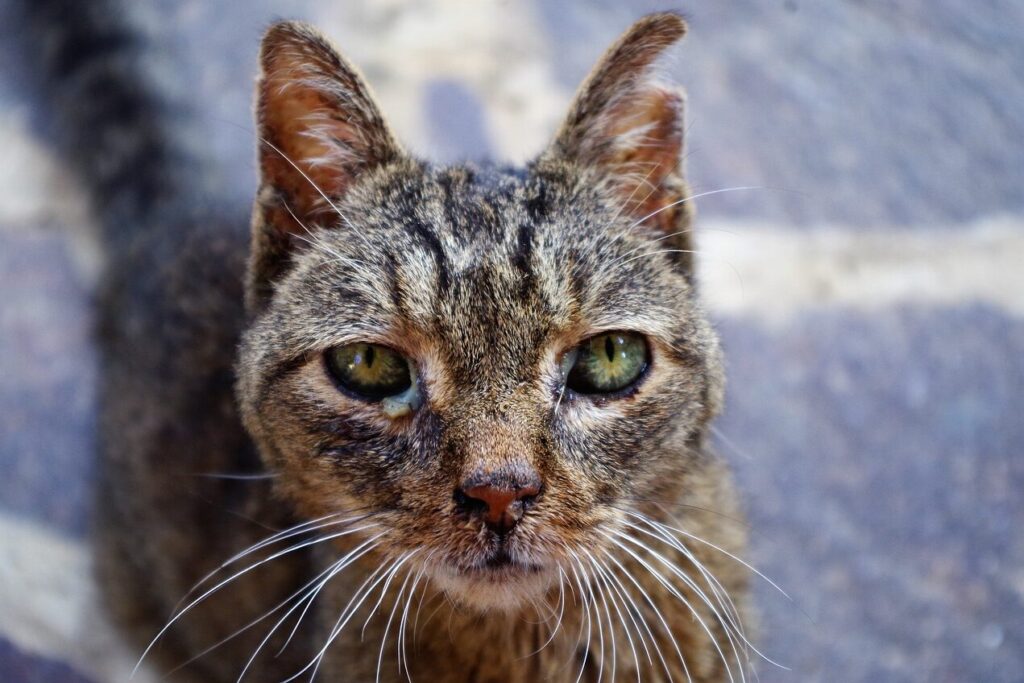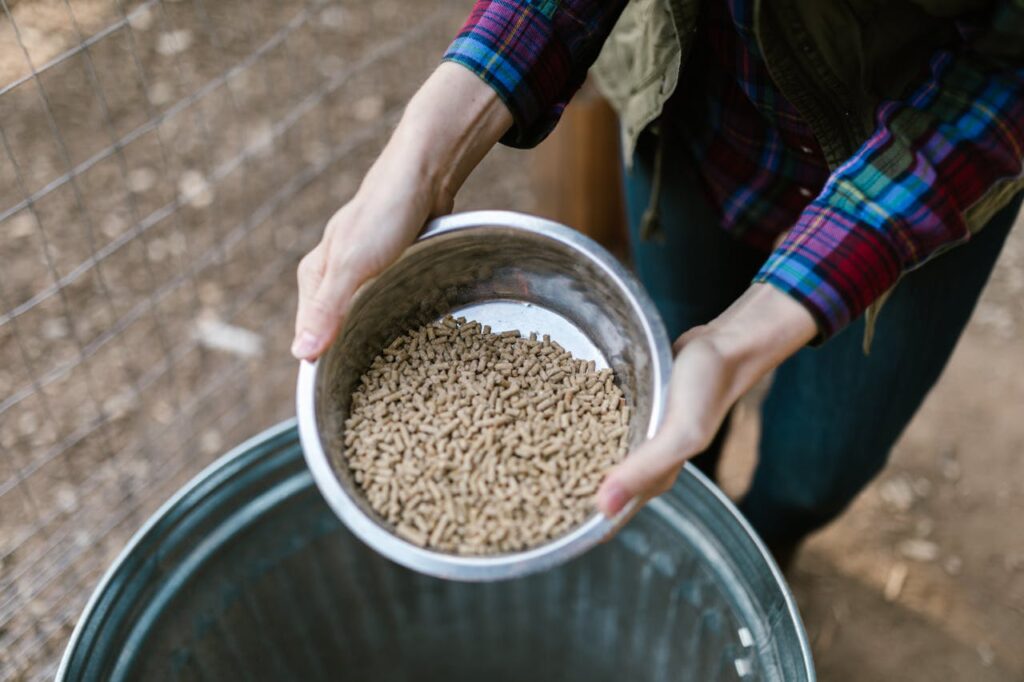1. Unexplained Illness or Symptoms in Your Pet

If your pet suddenly develops vomiting, diarrhea, lethargy, or loss of appetite, their food could be contaminated with bird flu. Avian influenza can trigger respiratory, digestive, or even neurological issues in pets. If symptoms appear after starting a new batch of food, contamination might be the cause.
Veterinarians warn that bird flu symptoms can mimic other illnesses, so it’s important to watch for sudden changes and consult a vet for a proper diagnosis. Early care can prevent severe outcomes, as some pets may need treatment to recover.
Source: Hingham Animal Clinic
2. Unusual Smell or Appearance of the Food

A foul odor or unusual appearance in pet food can signal contamination. Bird flu and other pathogens may survive in improperly stored food, especially raw or minimally processed products. Signs like bad smells, discoloration, mold, or odd particles should not be ignored. Experts advise checking food before feeding and storing it in sealed, cool, dry containers. Discard any food that seems off to keep pets safe from potential infection.
Source: Consumer Reports
3. Unexplained Increase in Respiratory Issues

Coughing, sneezing, nasal discharge, or breathing trouble can signal avian influenza exposure in pets, though these symptoms are rare. Pets may be at risk if they consume contaminated food or contact infected birds. Veterinarians recommend seeking prompt care if respiratory issues arise, especially after a diet change. Avian flu can cause mild to severe breathing problems and lethargy, so early treatment is key to preventing complications.
Source: Hingham Animal Clinic
4. Food Recalls or Reports of Contamination

A pet food recall tied to bird flu is a key warning sign. Recalls are issued when contamination is detected, often by the FDA or CDC. Pet owners should stay updated on recalls and check packaging batch numbers against alerts. If your pet has eaten recalled food, stop feeding it immediately and contact your veterinarian to assess any risk or symptoms. Early action helps prevent further health issues.
Source: The Today Show
5. Change in Behavior or Energy Levels

A sudden drop in your pet’s energy or interest in normal activities can signal a health issue. Avian influenza may cause lethargy and loss of appetite as the body fights infection. Experts advise monitoring behavior changes, especially after introducing new pet food. If your pet becomes unusually tired or inactive, consult a veterinarian promptly. Early care can prevent complications and ensure proper treatment.
Source: American Veterinary Medical Association (AVMA)
6. Inconsistent or Poor Quality Ingredients

Contamination with bird flu can stem from poor-quality ingredients in pet food. A sudden change in texture, color, or consistency may signal a problem. Veterinarians warn that food made from lower-quality poultry sources carries a higher risk of contamination. To reduce this risk, buy from trusted brands that are transparent about sourcing and have strong safety practices. Always check for changes in your pet’s food and contact your vet if concerned.
7. Gastrointestinal Distress or Bloody Stool

Diarrhea, vomiting, or bloody stool can signal that a pet consumed contaminated food, possibly tainted with bird flu. While mild stomach upset is common, bloody stool or persistent diarrhea should never be ignored. Experts urge pet owners to seek veterinary care immediately if symptoms appear after eating suspect food, especially during recalls or outbreaks. A vet may recommend dietary changes and monitoring for further issues to ensure your pet’s recovery.
For daily updated information please go to the Center for Disease Control (CDC) Website HERE
Please send any updates, corrections or any more medical information in the comments or to our Editor at mgitter@gmail.com


